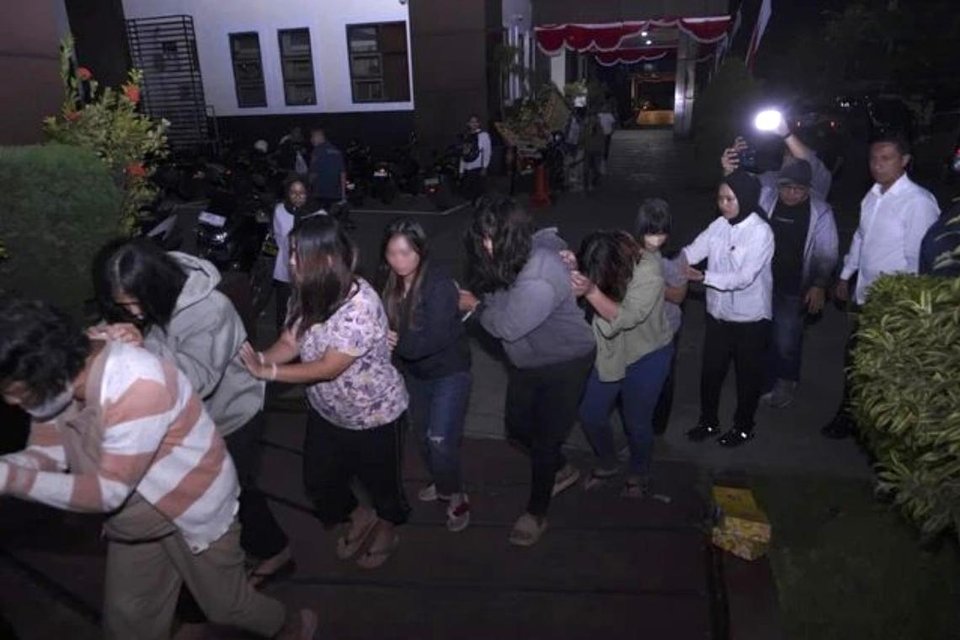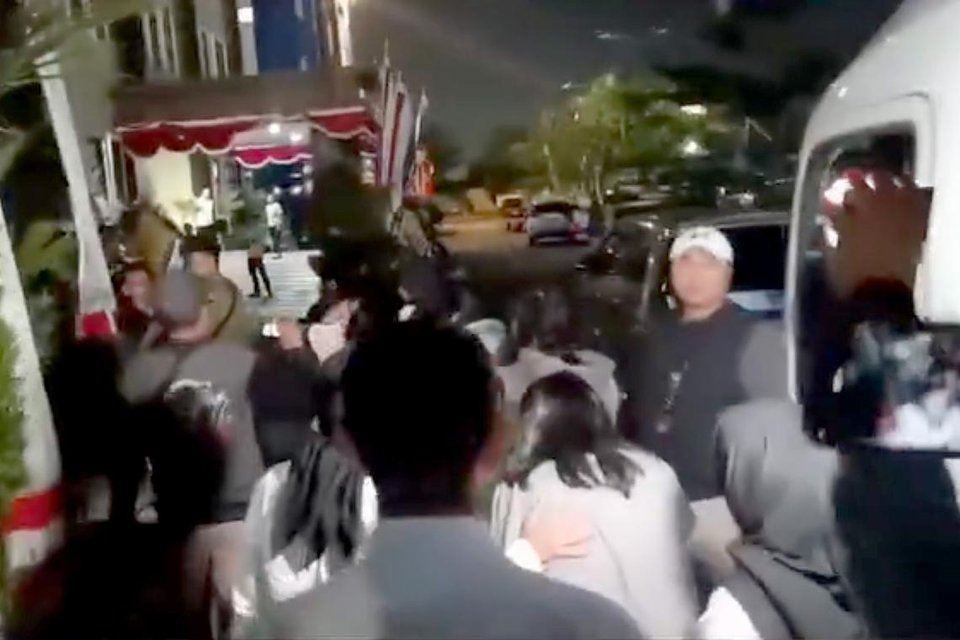Indonesian police have arrested 12 suspects and rescued six babies in a major operation against a human trafficking syndicate. The rescued infants, aged between two and three months old, were allegedly destined for buyers abroad.

Five of the six babies were ready to be sent to Singapore buyers, while one was bound for Pontianak. Director of General Crime Investigation of West Java Police Department Surawan confirmed the syndicate had already completed 24 such deals since 2023.
The case came to light after a parent reported their child had been kidnapped by an unknown person. Police investigations led them to a baby shelter in East Bandung, where they discovered the trafficking operation.
14 Babies Already Sold to Singapore Buyers Since 2023
Of the 24 infants previously sold by the syndicate, 14 were sent to Singapore. The remaining babies were distributed to other locations including Pontianak.
The perpetrators moved the babies to Pontianak city on Borneo island before sending them onwards to Singapore. The babies ranged in age from under one year old, with some as young as three months, five months, and six months old.
The 12 arrested suspects held various roles within the trafficking network. Some acted as initial recruiters, others operated baby shelters, while several worked as caregivers and couriers who delivered infants to clients’ intended locations.
Head of public relations for West Java Police Hendra Rochmawan said authorities seized fake identity cards, passports and other documents identifying the victims during the arrests.
Each baby successfully transported to Singapore was sold for tens of millions of rupiah. The syndicate purchased babies from biological mothers for approximately 11 million to 16 million rupiah (S$865 to S$1,258).

Some suspects were tasked with finding the babies, while others cared for them, sheltered them or prepared civil registration documents such as family cards and passports.
Parents Involved and Operation Methods
The police sought out “parents or mothers who refuse to care for their children” in return for money. Surawan explained that some babies were obtained from parents who voluntarily gave them up while others were allegedly kidnapped.
The parent who reported the kidnapping “actually had an agreement” with the smugglers before their child’s birth, but reported them when they did not receive payment afterwards.
Authorities managed to rescue five babies in Pontianak and one in Tangerang, a city near the Indonesian capital Jakarta. They arrested suspects across Jakarta, Pontianak and the Javan city of Bandung.

The six rescued babies were sent to Bhayangkara Sartika Asih Hospital in Bandung for medical treatment. All victims will be placed in the shelter of the West Java Social Service.
“We are still investigating the babies that are already in Singapore and will coordinate with the Interpol to pursue this case further,” Surawan stated.
The 12 suspects remain under interrogation as investigations continue. Indonesian authorities confirmed the babies were intended to be transported to Singapore through the suspects’ statements, though they described the transactions as adoptions.
This marks another instance of baby smuggling from Indonesia to Singapore. In 2016, Indonesian authorities arrested three suspects in Batam for allegedly planning to sell a three-month-old baby boy to Singapore for approximately US$8,000 (~S$10,720).
Human trafficking remains a domestic problem across Southeast Asia’s biggest economy, a sprawling nation of more than 17,000 islands. In one of the worst cases in recent years, at least 57 people were found caged in a palm oil plantation in North Sumatra in 2022.
Under Singapore’s adoption laws, couples seeking to adopt must both be permanent residents or have at least one Singapore citizen. Solo applicants must be citizens or permanent residents.
Foreign child adoption requires a dependant’s pass to bring the child into Singapore. Applicants must submit the child’s identity documents and notarised consent from birth parents or legal guardians, effectively transferring all parental rights and obligations.
A Home Study Report verifying the applicant’s suitability as a parent is mandatory for foreign child adoptions. Each report remains valid for one adoption and lasts two years.




